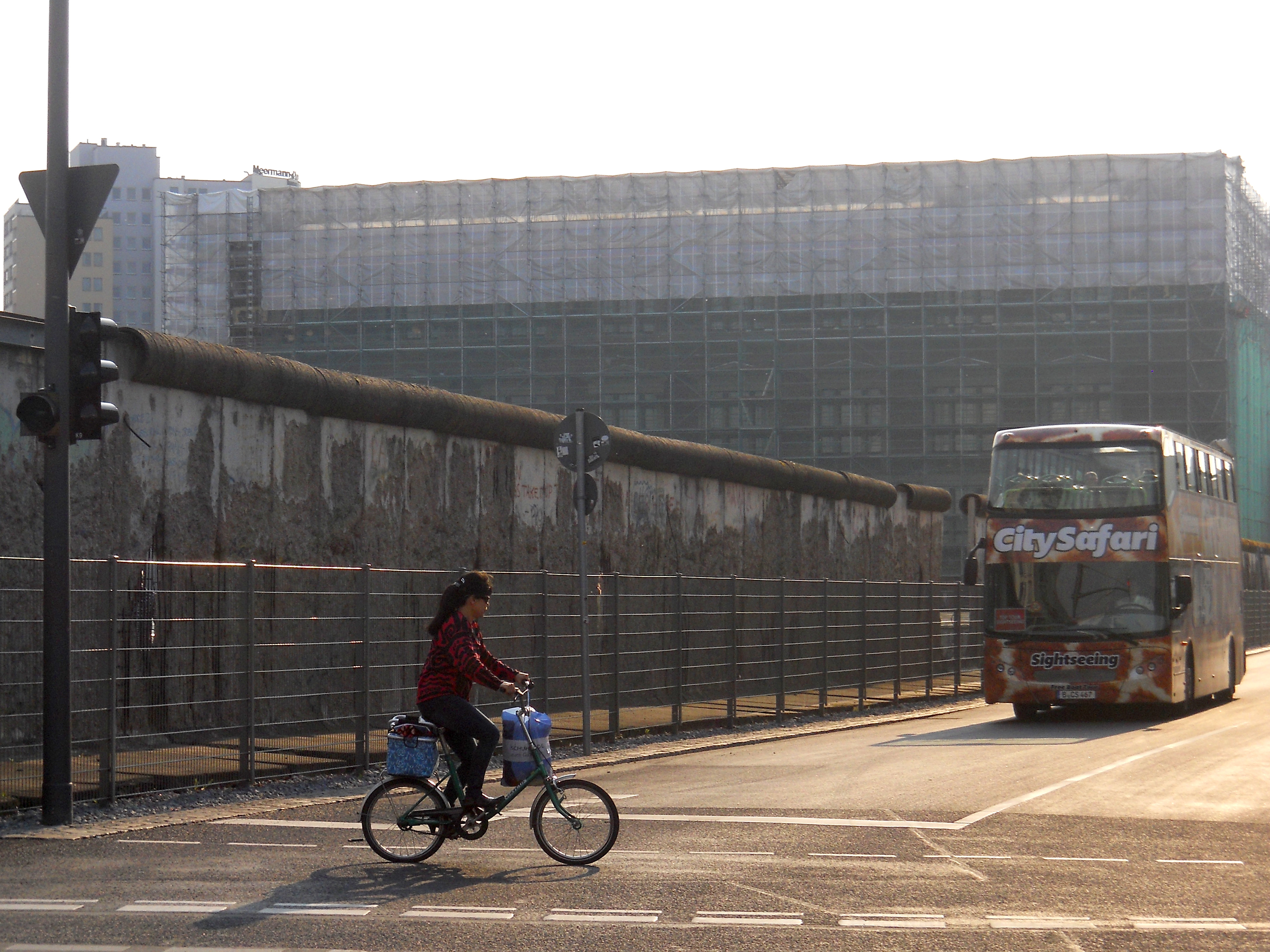
By guest artist/writer, Joe Marinelli
I took this picture of the Berlin Wall nearly two years ago while studying abroad during the second half of my junior year. I didn’t think much of it at the time – if I recall correctly, I shot this in the middle of an exhaustive walking tour of the city, which crammed the best of Berlin into a ten-hour tour.
Reflecting on the image now, I am drawn to its simplicity and emptiness. The image neither illustrates a captivating narrative of the country’s tumultuous past, nor does it accurately depict a scene of modern-day life in one of the most progressive European cities. It’s simply a lingering moment of my life, to which I arbitrarily assigned significance.
Would you have even recognized it as the Berlin Wall if I had not mentioned it? Does it even matter?
Personally, I find no significance in the ruins of a past for which I was not present. That said, 20th century Germany arguably defines one of the most intriguing epochs of European history. Some point to this crumbling structure as a reminder of the way things used to be, the scar of an oppressive Communist regime that divided a country in half.
In a sense, our own lives are marked by several Berlin Walls, some crumbling into unrecognizable ruins, others still erect and impenetrable. We cling to those that we believe are important for whatever reason. We discard those that we wish to forget. Nonetheless, each day we continue to pass through the same Checkpoint Charlie until Charlie says, “No, no. You’ve done your duty. Goodbye.”
Or perhaps he says nothing at all.
Interesting? Quite. Significant? Only in so much as we choose to assign it.
